第5章 CHAPTER I(2)
I will not waste time and space by describing the horrible sea-sickness of most of the passengers,a misery which I did not myself experience,nor yet will I prolong the narrative of our voyage down the Channel--it was short and eventless.The captain says there is more danger between Gravesend and the Start Point (where we lost sight of land)than all the way between there and New Zealand.Fogs are so frequent and collisions occur so often.Our own passage was free from adventure.In the Bay of Biscay the water assumed a blue hue of almost incredible depth;there,moreover,we had our first touch of a gale--not that it deserved to be called a gale in comparison with what we have since experienced,still we learnt what double-reefs meant.After this the wind fell very light,and continued so for a few days.On referring to my diary,I perceive that on the 10th of October we had only got as far south as the forty-first parallel of latitude,and late on that night a heavy squall coming up from the S.W.brought a foul wind with it.It soon freshened,and by two o'clock in the morning the noise of the flapping sails,as the men were reefing them,and of the wind roaring through the rigging,was deafening.All next day we lay hove to under a close-reefed main-topsail,which,being interpreted,means that the only sail set was the main-topsail,and that that was close reefed;moreover,that the ship was laid at right angles to the wind and the yards braced sharp up.
Thus a ship drifts very slowly,and remains steadier than she would otherwise;she ships few or no seas,and,though she rolls a good deal,is much more easy and safe than when running at all near the wind.Next day we drifted due north,and on the third day,the fury of the gale having somewhat moderated,we resumed--not our course,but a course only four points off it.The next several days we were baffled by foul winds,jammed down on the coast of Portugal;and then we had another gale from the south,not such a one as the last,but still enough to drive us many miles out of our course;and then it fell calm,which was almost worse,for when the wind fell the sea rose,and we were tossed about in such a manner as would have forbidden even Morpheus himself to sleep.And so we crawled on till,on the morning of the 24th of October,by which time,if we had had anything like luck,we should have been close on the line,we found ourselves about thirty miles from the Peak of Teneriffe,becalmed.This was a long way out of our course,which lay three or four degrees to the westward at the very least;but the sight of the Peak was a great treat,almost compensating for past misfortunes.The Island of Teneriffe lies in latitude 28degrees,longitude 16degrees.It is about sixty miles long;towards the southern extremity the Peak towers upwards to a height of 12,300feet,far above the other land of the island,though that too is very elevated and rugged.Our telescopes revealed serrated gullies upon the mountain sides,and showed us the fastnesses of the island in a manner that made us long to explore them.We deceived ourselves with the hope that some speculative fisherman might come out to us with oranges and grapes for sale.He would have realised a handsome sum if he had,but unfortunately none was aware of the advantages offered,and so we looked and longed in vain.The other islands were Palma,Gomera,and Ferro,all of them lofty,especially Palma--all of them beautiful.On the seaboard of Palma we could detect houses innumerable;it seemed to be very thickly inhabited and carefully cultivated.The calm continuing three days,we took stock of the islands pretty minutely,clear as they were,and rarely obscured even by a passing cloud;the weather was blazing hot,but beneath the awning it was very delicious;a calm,however,is a monotonous thing even when an island like Teneriffe is in view,and we soon tired both of it and of the gambols of the blackfish (a species of whale),and the operations on board an American vessel hard by.
On the evening of the third day a light air sprung up,and we watched the islands gradually retire into the distance.Next morning they were faint and shrunken,and by midday they were gone.The wind was the commencement of the north-east trades.On the next day (Thursday,October 27,lat.27degrees 40minutes)the cook was boiling some fat in a large saucepan,when the bottom burnt through and the fat fell out over the fire,got lighted,and then ran about the whole galley,blazing and flaming as though it would set the place on fire,whereat an alarm of fire was raised,the effect of which was electrical:there was no real danger about the affair,for a fire is easily extinguishable on a ship when only above board;it is when it breaks out in the hold,is unperceived,gains strength,and finally bursts its prison,that it becomes a serious matter to extinguish it.This was quenched in five minutes,but the faces of the female steerage passengers were awful.Inoticed about many a peculiar contraction and elevation of one eyebrow,which I had never seen before on the living human face,though often in pictures.I don't mean to say that all the faces of all the saloon passengers were void of any emotion whatever.
The trades carried us down to latitude 9degrees.They were but light while they lasted,and left us soon.There is no wind more agreeable than the N.E.trades.The sun keeps the air deliciously warm,the breeze deliciously fresh.The vessel sits bolt upright,steering a S.S.W.course,with the wind nearly aft:she glides along with scarcely any perceptible motion;sometimes,in the cabin,one would fancy one must be on dry land.The sky is of a greyish blue,and the sea silver grey,with a very slight haze round the horizon.The water is very smooth,even with a wind which would elsewhere raise a considerable sea.